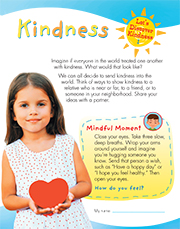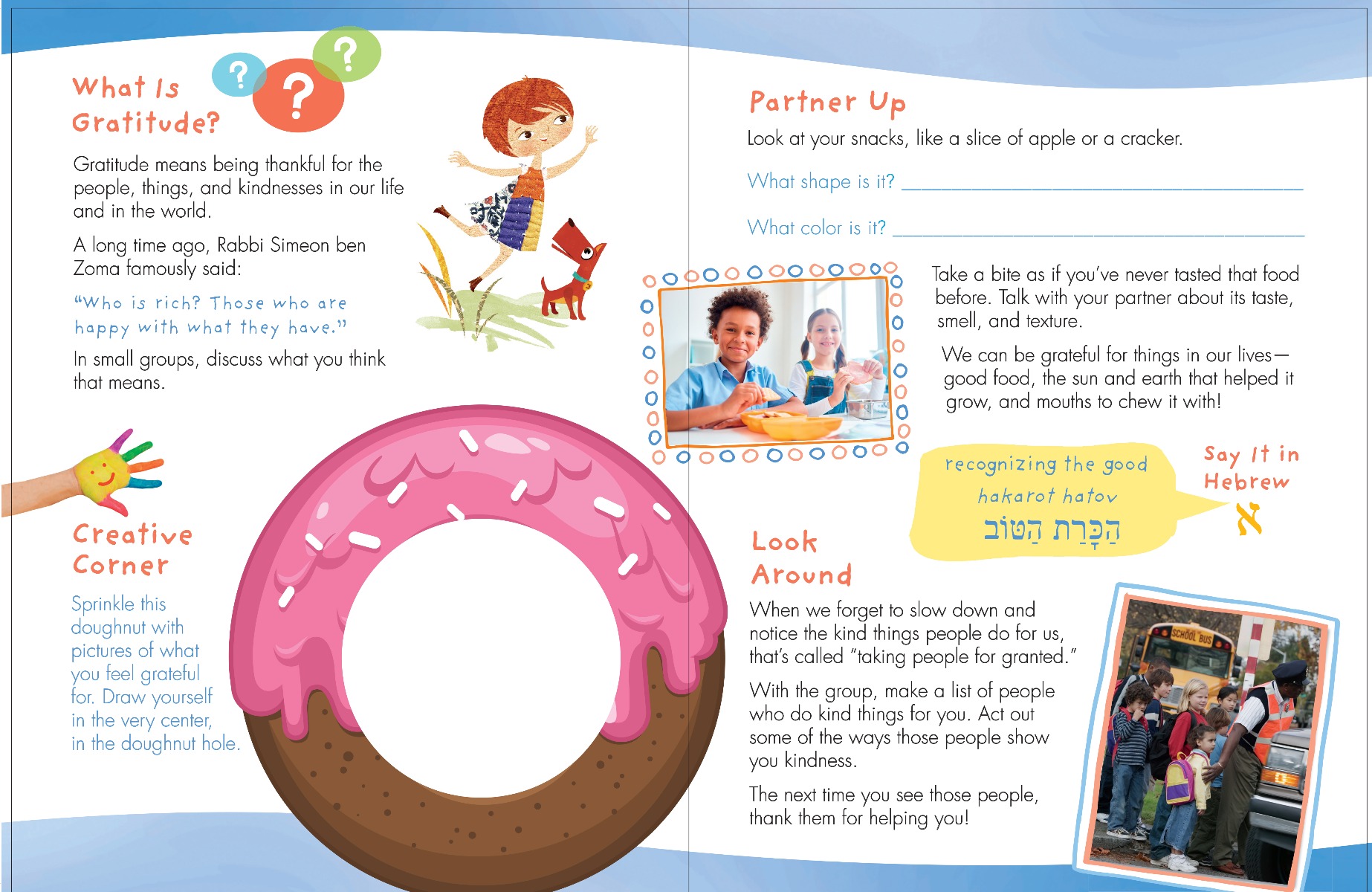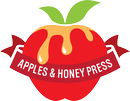Teach Gratitude as a Jewish Value: New Series For Young Children Focuses on Kindness

A long time ago, Rabbi Simeon ben Zoma famously said, "Who is rich? Those who are happy with what they have." Gratitude, or hakarat hatov, is an important value in Judaism, one with a direct connection to kindness. We know what kindness is—what it feels like, what actions we associate with it, why we are drawn to it—but putting the concept into specific words for young children can be difficult.
Our new series Let’s Discover Kindness helps children in grades 1-2 explore kindness and the character traits—including gratitude, empathy, acceptance, and respect—that contribute to it, viewed through a Jewish lens. Each element is explored in its own four-page folder. One of the Big Ideas for the Gratitude folder is that acknowledging our blessings inspires kindness to others. Another Big Idea is that Judaism offers many ways to express gratitude, such as through prayer, blessings, and special moments of reflection.
The learning takes place through activities such as role play, art, mindfulness, movement, and personal reflection. Underlying the series is the invitation to children to notice how it feels to be a certain way, and how their feelings and actions manifest and affect themselves and others.
For example, a Partner Up activity in the Gratitude folder asks children to observe their snacks and record their observations, such as its shape and color. They figure out together how the snack got to them, through actions such as a farmer planting seeds, a baker baking it, a driver taking it to a store, or their parent buying the snack at the store. Then the students eat the snack and share their observations about its taste, texture and smell. Through this process, students are encouraged to think about how making the list and observing it changes the experience of eating the snack. After all, gratitude stems from noticing and reflecting.
Each folder in the series introduces a Hebrew word, such as chesed, hakarat hatov, and kavod, reinforcing that Jews have taught and thought about kindness for thousands of year. Using Jewish quotes and highlighting personalities from Jewish history helps students make connections to their heritage.
In the folder about gratitude, students discuss how recoginizing the good (the literal definition of hakarat hatov) and being thankful connects to kindness. Students also learn other words and phrases that connect with the idea of gratitude, such as todah (thank you) and hodu l'Adonai (thanks to God).
The Teacher's Edition suggests contrasting the concept of lashon hara with chesed to reinforce the importance of kindness in Jewish tradition.
Click here to learn more about this new folder series. Don't forget — educators receive 5% off on all judaica items and teacher resources.
Don’t forget to subscribe to our newsletter and connect with us on social media!






